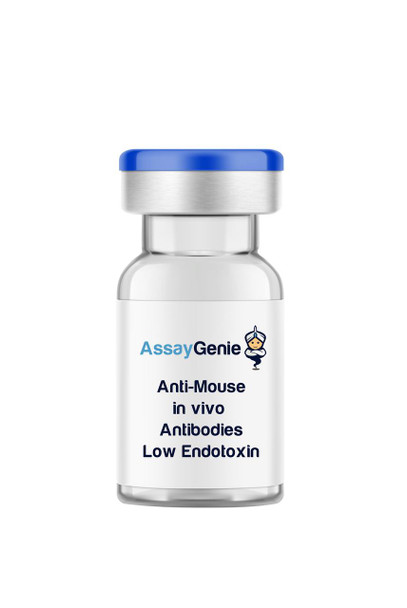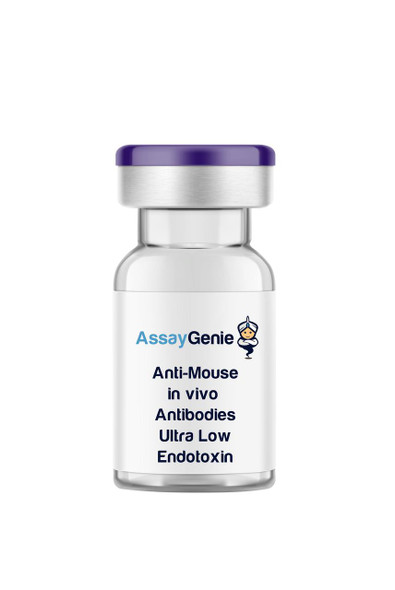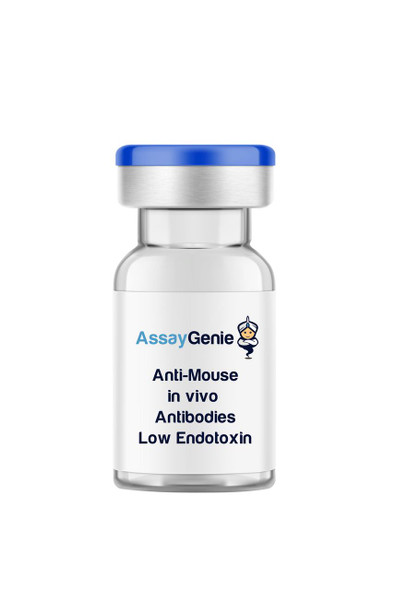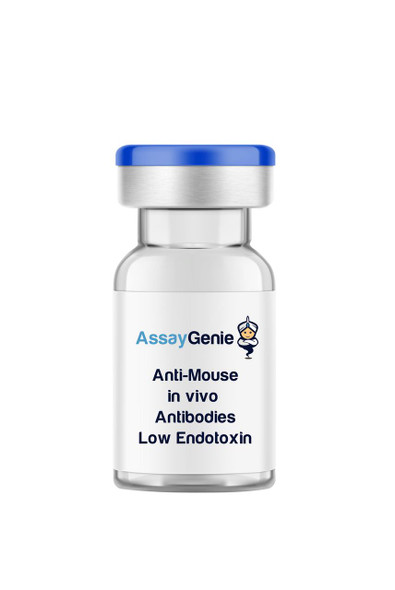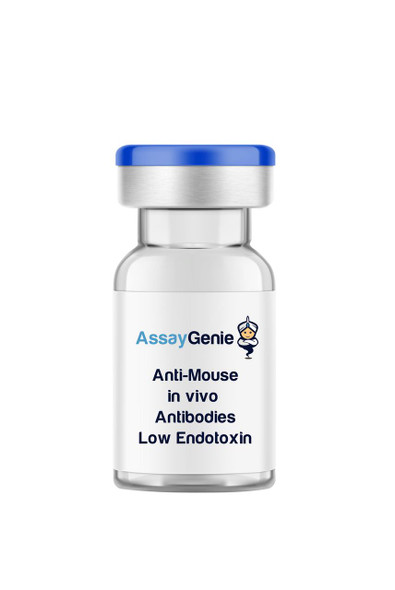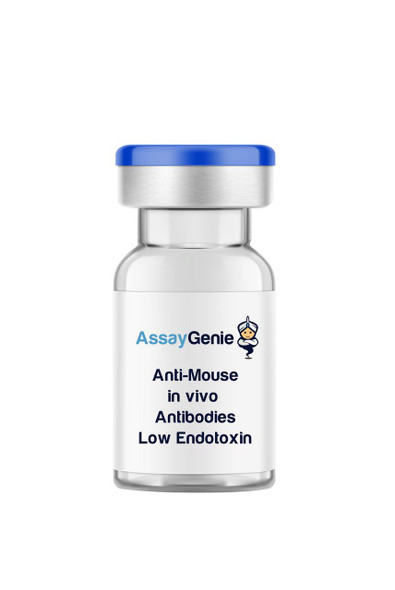Anti-Mouse RANKL In Vivo Antibody - Low Endotoxin
- SKU:
- IVMB0055
- Product Type:
- In Vivo Monoclonal Antibody
- Clone:
- IK22/5
- Protein:
- RANKL
- Isotype:
- Rat IgG2a kappa
- Reactivity:
- Mouse
- Synonyms:
- CD254
- TRANCE
- hRANKL2
- sOdf
- TNF-Related Activation-Induced Cytokine [TRANCE]
- Osteoprotegrin Ligan
- Research Area:
- Cytokines, Chemokines & Receptors
- Endotoxin Level:
- Low Endotoxin
- Host Species:
- Rat
- Applications:
- Blocking
- FC
- IP
- WB
Description
| Product Name: | Anti-Mouse RANKL In Vivo Antibody - Low Endotoxin |
| Product Code: | IVMB0055 |
| Size: | 1mg, 5mg, 25mg, 50mg, 100mg |
| Clone: | IK22/5 |
| Protein: | RANKL |
| Product Type: | Monoclonal Antibody |
| Synonyms: | CD254, TRANCE, hRANKL2, sOdf, TNF-Related Activation-Induced Cytokine [TRANCE], Osteoprotegrin Ligan |
| Isotype: | Rat IgG2a κ |
| Reactivity: | Mouse |
| Immunogen: | Purified Recombinant Mouse RANKL (NSO-derived) |
| Applications: | B, FC, IP, WB |
| Formulation: | This monoclonal antibody is aseptically packaged and formulated in 0.01 M phosphate buffered saline (150 mM NaCl) PBS pH 7.2 - 7.4 with no carrier protein, potassium, calcium or preservatives added. |
| Endotoxin Level: | < 1.0 EU/mg as determined by the LAL method |
| Purity: | ≥95% monomer by analytical SEC >95% by SDS Page |
| Preparation: | Functional grade preclinical antibodies are manufactured in an animal free facility using only In vitro protein free cell culture techniques and are purified by a multi-step process including the use of protein A or G to assure extremely low levels of endotoxins, leachable protein A or aggregates. |
| Storage and Handling: | Functional grade preclinical antibodies may be stored sterile as received at 2-8°C for up to one month. For longer term storage, aseptically aliquot in working volumes without diluting and store at -80°C. Avoid Repeated Freeze Thaw Cycles. |
| Applications: | B, FC, IP, WB |
| Recommended Usage: | FC The suggested concentration for RANKL antibody, clone IK22/5 for staining cells in flow cytometry is ≤ 0.25 µg per 106 in a volume of 100 µl or 100 µl of whole blood. Titration of the reagent is recommended for optimal performance for each application. WB The suggested concentration for this RANKL antibody for use in western blotting is 1-10 µg/ml. |
| Reactivity: | Mouse |
| Host Species: | Rat |
| Specificity: | Clone IK22/5 recognizes an epitope on mouse RANKL. |
| Antigen Distribution: | RANKL is expressed on activated T cells and osteoclasts. |
| Immunogen: | Purified Recombinant Mouse RANKL (NSO-derived) |
| Concentration: | ≥ 5.0 mg/ml |
| Endotoxin Level: | < 1.0 EU/mg as determined by the LAL method |
| Purity: | ≥95% monomer by analytical SEC >95% by SDS Page |
| Formulation: | This monoclonal antibody is aseptically packaged and formulated in 0.01 M phosphate buffered saline (150 mM NaCl) PBS pH 7.2 - 7.4 with no carrier protein, potassium, calcium or preservatives added. |
| Preparation: | Functional grade preclinical antibodies are manufactured in an animal free facility using only In vitro protein free cell culture techniques and are purified by a multi-step process including the use of protein A or G to assure extremely low levels of endotoxins, leachable protein A or aggregates. |
| Storage and Handling: | Functional grade preclinical antibodies may be stored sterile as received at 2-8°C for up to one month. For longer term storage, aseptically aliquot in working volumes without diluting and store at -80°C. Avoid Repeated Freeze Thaw Cycles. |
RANKL antibody, clone IK22/5, recognizes receptor activator of NF-κB ligand (RANKL), also known as CD254, TNF-related activation-induced cytokine (TRANCE), tumor necrosis factor ligand superfamily member 11 (TNFSF11), osteoprotegerin ligand (OPGL), and osteoclast differentiation factor (ODF). RANKL is a type II transmembrane protein belonging to the TNF cytokine superfamily and binds to the signaling receptor, RANK, or decoy receptor, osteoprotegerin (OPG). RANKL is expressed on osteoclasts and is essential for osteoclast differentiation, activation, and survival1. RANKL is also expressed on activated T cells and regulates T cell-dendritic cell (DC) interactions, enhancing DC activation and survival2-3. In addition, RANKL is crucial for lymph node, bone marrow, and thymus development4. Treatment with denosumab, an antibody directed against RANKL, is approved for the treatment of patients at high risk for bone fractures, including osteoporosis, and has shown anti-tumor effects5.
| Technical Datasheet: | View |
| Protein: | RANKL |
| Ligand/Receptor: | RANK, OPG |
| Research Area: | Cell Biology, Immunology |

